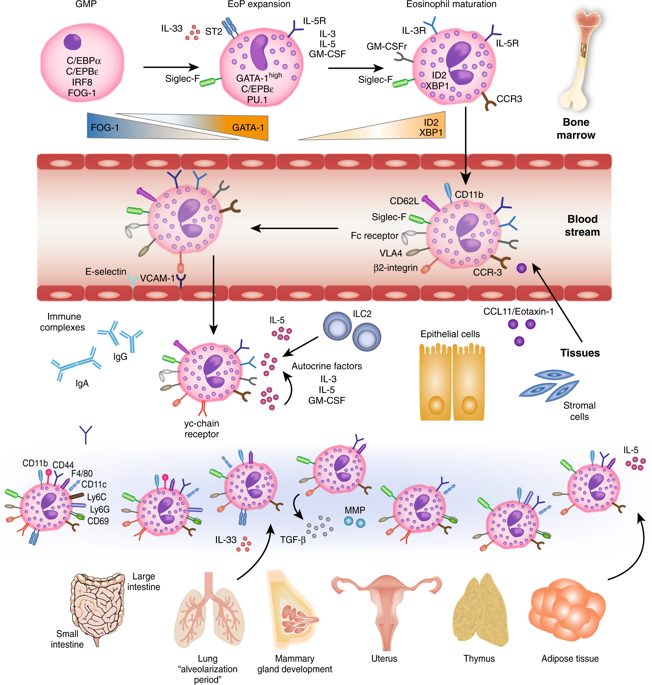Mucosal Immunology ( IF 7.9 ) Pub Date : 2020-03-10 , DOI: 10.1038/s41385-020-0281-y Kathleen Shah 1, 2 , Aline Ignacio 3 , Kathy D McCoy 3 , Nicola L Harris 1, 4

|
Eosinophils are granulocytes, typically implicated as end-stage effector cells in type-II immune responses. They are capable of producing a wide array of pre-formed molecules which render them with vast potential to influence a wide variety of processes. Nonetheless, eosinophil research has traditionally focused on their role in anti-helminthic responses and pathophysiological processes in type-II immune disorders, such as allergy and asthma, where eosinophilia is a hallmark phenotype. However, a number of key studies over the past decade have placed this restricted view of eosinophil function into question, presenting additional evidence for eosinophils as critical regulators of various homeostatic processes including immune maintenance, organ development, and tissue regeneration.
中文翻译:

嗜酸性粒细胞在粘膜稳态中的新作用。
嗜酸性粒细胞是粒细胞,通常作为 II 型免疫反应中的终末期效应细胞。它们能够产生范围广泛的预成型分子,这使它们具有影响各种过程的巨大潜力。尽管如此,嗜酸性粒细胞研究传统上侧重于它们在 II 型免疫疾病(例如过敏和哮喘)中的抗蠕虫反应和病理生理过程中的作用,其中嗜酸性粒细胞增多是标志性表型。然而,过去十年的许多关键研究对嗜酸性粒细胞功能的这种局限性观点提出了质疑,提供了嗜酸性粒细胞作为各种稳态过程(包括免疫维持、器官发育和组织再生)的关键调节剂的额外证据。











































 京公网安备 11010802027423号
京公网安备 11010802027423号